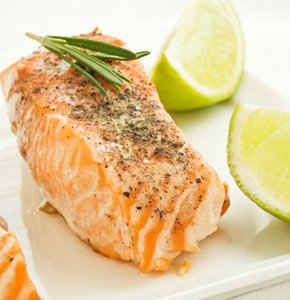If you were given the choice between having a baby with above-average intelligence and a baby with below-average intelligence, chances are you’d want the smarter baby, right? Which means that during pregnancy, you’d likely be willing to do whatever it takes to achieve this goal. In the quest to produce more intelligent offspring, you may have come across the claim that eating fish while you’re pregnant or breastfeeding can make your baby smarter. But is this really true?
It turns out, there may be some truth to this idea, but the studies that have been done aren’t that conclusive. Specifically, it’s the omega-3 fatty acids in fish that researchers have found to have benefits for reducing the risk of certain conditions – like heart disease – in adults and increasing cognitive development in kids younger than 3. While it was found that consuming fish in the second and third trimesters of pregnancy increased the visual and cognitive test results in young children, other factors might also impact child development.
Omega-3s are still promising though, so it doesn’t hurt to get as much of them as possible while you’re getting ready for baby
. Two or three servings a week should suffice. Just be sure to stay away from fish that may have a high mercury content, like marlin, tuna, mackerel, shark, swordfish, grouper and sea bass. Mercury is toxic, and can be problematic for expecting women and their babies.
Don’t forget, too, that fish isn’t the only source of omega-3s. Nuts, flaxseed, beans, spinach, winter squash, broccoli and cauliflower can also help you get these healthy fats. If you’re still concerned that you’re not getting enough, supplements are also available. Just make sure you discuss the matter with your health care provider. In the end, you may end up with a smarter baby!
